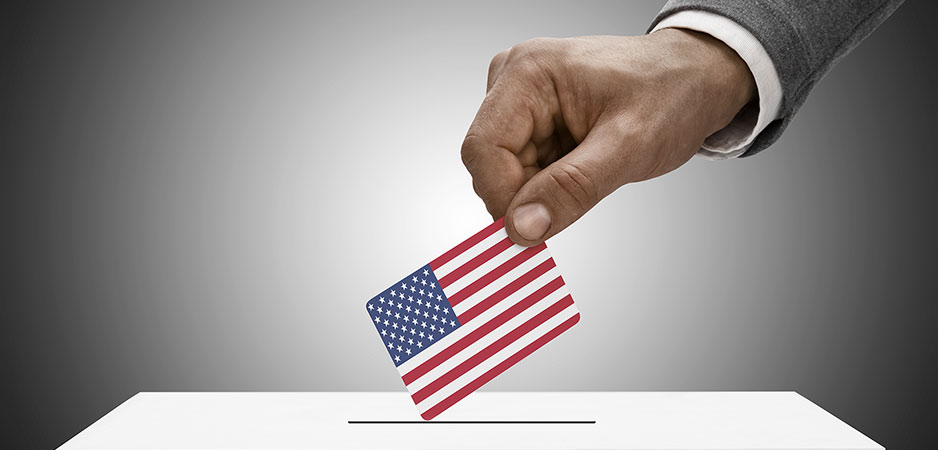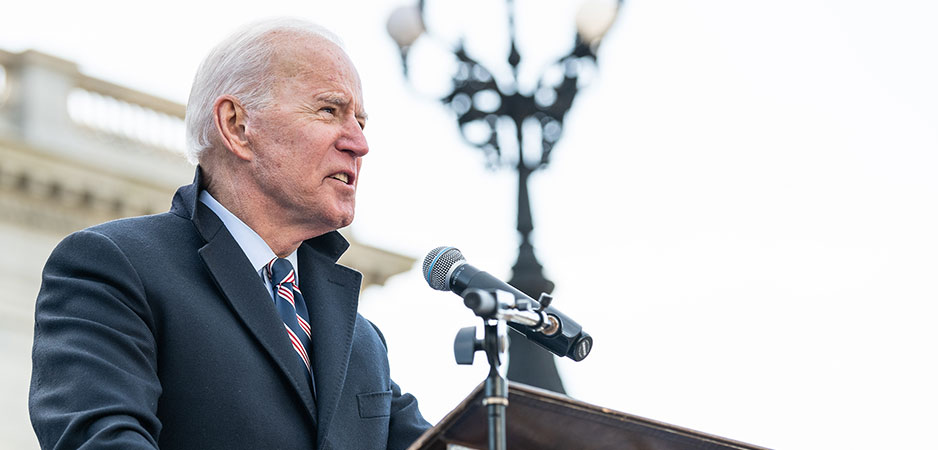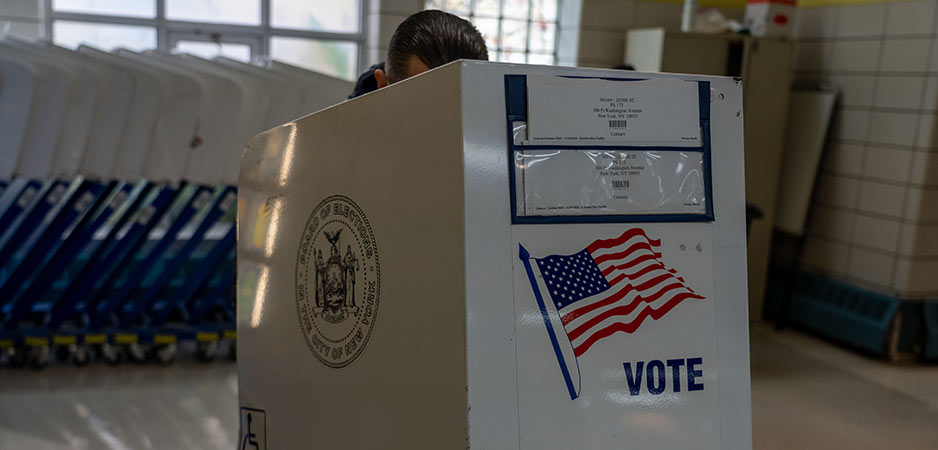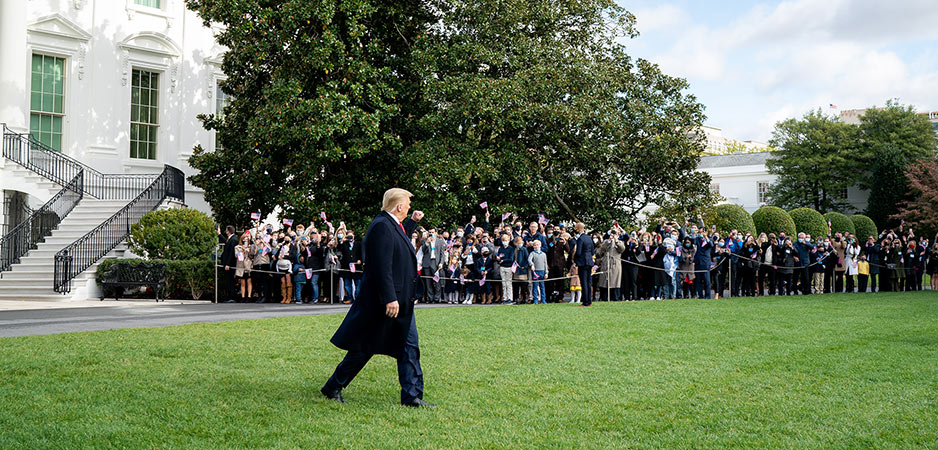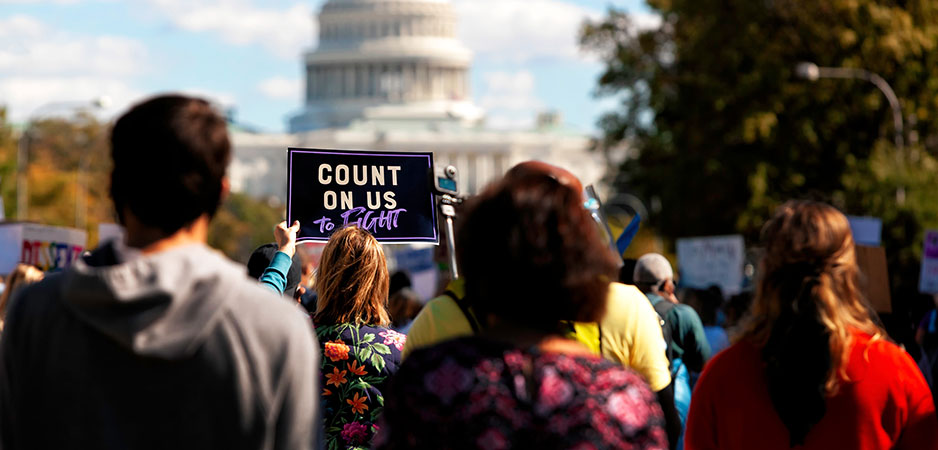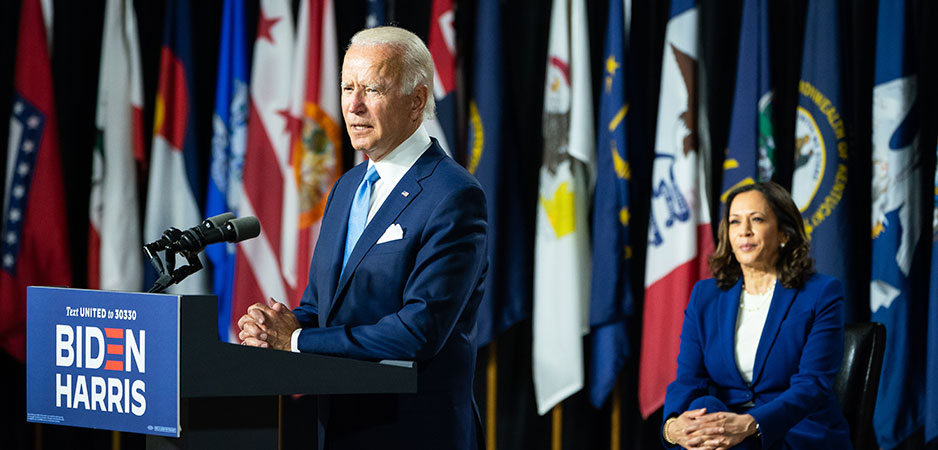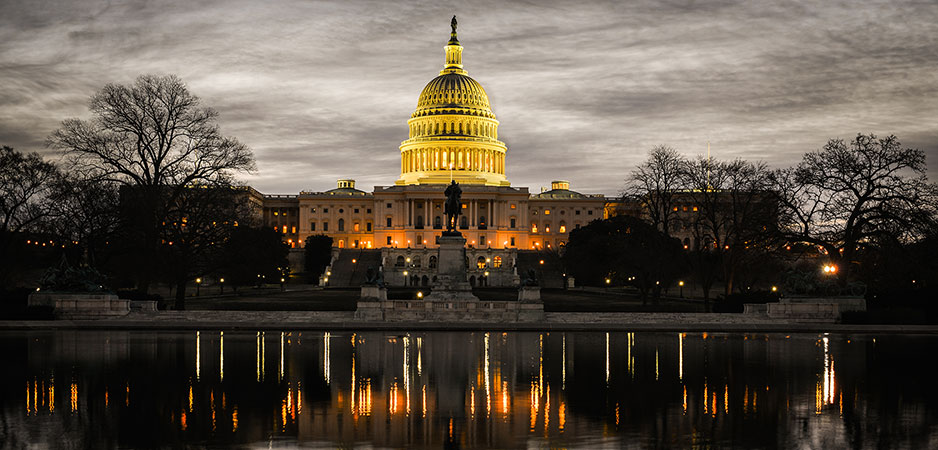In August, Joe Biden addressed the Democratic National Convention as he accepted his party’s nomination to run for president. During his speech, Biden framed the election on November 3 as a battle for the “soul of America.” The former vice president depicted the urgency of the moment as he saw it: that the American people have a critical choice to make in an election that carries great social, political and economic implications.
However, Biden’s use of the word “soul” is not new to American political discourse, according to historian Jon Meacham. Behind Biden’s message is an appeal to euro-centric principles or certain traditions attempting to underscore the reality that the US political and economic system is broken — dividing people culturally and socially along the way. Biden claims our beliefs, values and political norms have been dismantled, corrupted and co-opted by those who either do not understand them, take them for granted or perhaps couldn’t care less about them for the sake of their interests.
360° Context: The 2020 US Election Explained
The blame is placed on President Donald Trump and his associates at home and abroad for good reasons. Trump and his ilk have distorted or corrupted liberal traditions, republican citizenship and democratic institutions and, at the same time, they have disregarded individual rights, civic fairness and human decency.
Trump has wrought a new divisive politics, from his self-serving slogans (“Make America Great Again” to “Keep America Great”) and rhetorical tweet storms to his elite-centered social policies. Together, this has ushered into the mainstream of American life radical right-wing ideas, extra racial and immigrant animus, and anti-media hostility. These divisions have reached unimaginable heights, with dire consequences reflected further in Trump’s and the Republicans’ lack of leadership around the coronavirus pandemic, racial and social justice, the homelessness crisis and rising unemployment, among others.
Both Trump and Biden are operating within a symbolic/performative political frame that supposedly addresses the real needs of the American working people. Yet the competing slogans and the performative politics we have witnessed over the past few months have done more to perpetuate the bitter partisanship keeping us “trampling on each other for our scraps of bread,” as E.L. Doctorow pointed out in 1992. So, what we instead need is a transformative (redistributive) politics that directly answers the complex quotidian concerns of the majority working-class people across race, ethnicity, gender, religion, and civic or legal status now and after the election.
Sloganism and Performative Politics
American author William Safire once wrote that slogans can serve as a “rallying cry” or a “catchphrase” that often “crystallizes an idea” or “defines an issue.” Most importantly, according to Safire, some slogans even “thrill, exhort and inspire” people into action. Sloganism has become an American neoliberal ideological tool and strategic marketing imperative that guides both the Republican and Democratic parties, especially during presidential elections.
The 2020 election seems different because there is more urgency to win at any cost, even at the expense of democracy itself, from both major parties and their supporters. American voters seem to gravitate more to familiar or comfortable slogans, without critically assessing the purpose or the message behind them. Many lose themselves in the symbols and patriotic images that slogans invoke. Even Biden seems to use a “Battle for the Soul of the Nation” as both aspirational and inspirational, if not transformational.
These slogans and the broader performative electoral context that gives rise to them obscure the political and economic structures creating and sustaining the underlying problems facing the working class. This includes wealth inequality, lack of labor and political power, declining wages, unemployment, affordable housing issues and limited access to quality health care. Taken together, all of this makes many Americans more vulnerable during public health crises, environmental disasters and economic downturns.
What Forms Transformative Politics Take Also Matters
We need to consider the forms of transformative politics that Trump, as the incumbent president, has engaged in that run counter to his “Keep America Great” slogan. Trump’s housing policy, for example, is not based on what the working class need, especially in the middle of a pandemic and economic crisis. His slogan does nothing to help those in need of affording housing, rent control and extended eviction moratoriums.
Trump’s proposed federal budgets and other policies on public and assisted housing reflect his real intentions. Yet his form of transformative politics was evident just a few years ago, too. “Trump’s administration has proposed legislation that would sharply raise rents for tenants in public and other federally subsidized housing,” wrote Thomas J. Waters back in 2018. Regarding the economy, this is what Trump’s transformative politics under his slogan “Keep America Great” looks like, according to Jerry White: “While tens of millions of people are confronting the worst economic and social crisis since the Great Depression, the multitrillion-dollar CARES Act bailout for Wall Street has led to booming bank profits. Goldman Sachs on [October 14] announced that its third-quarter profit nearly doubled to $3.62 billion.”
President Trump’s actions with failing to control the spread of the coronavirus are as irresponsible as his politics, economic views and policy positions. Trump used taxpayer-funded hospital services at Walter Reed Medical Center to “heal” from the COVID-19 disease, while ordinary Americans who do not have access to such quality services — despite paying taxes — die by the hundreds of thousands. Other Republicans have been irresponsible too. This is not what Americans want at any level of government.
Another way of looking at the impact of Trump’s form of transformative politics is his federal judge appointments, including the placement of Judge Amy Coney Barrett of the Seventh Federal Circuit to a lifetime appointment on the Supreme Court. Her place in the nation’s highest court has the potential of negatively transforming the lives of millions of Americans. Democratic Senator Sheldon Whitehouse argued in a recent statement that the effects of replacing the late Justice Ruth Bader Ginsberg with Barrett would eliminate many people’s access to health care. Moreover, Justice Barrett would signify a major shift in the court’s ideological makeup with transformative political, social and economic consequences.
Barrett, with her ultra-conservative credentials and originalist judicial philosophy, could play a role in overturning Roe v. Wade, a 1973 Supreme Court case to protect women’s reproductive rights, including access to abortion. Her appointment could also lead to the elimination of the Affordable Care Act, which protects over 20 million people with preexisting medical conditions. Most importantly, with another conservative justice in the court, Trump could secure an election victory by disqualifying mail-in ballots and allowing restrictive voting tactics (reducing drop-boxes, for instance) with impunity.
On voting rights and the role Barrett may play on any potential challenge to the election outcome, Mother Jones reporter Ari Berman observes: “President Trump has explicitly said that he wants the Supreme Court to look at the ballots. So, everything about Amy Coney Barrett’s nomination is illegitimate, but it’s especially illegitimate if Trump wants to get her on there so that he can install himself in a second term.” This form of transformative politics in the name of “keeping America great” would thus undermine the constitutional rights and civil liberties of all Americans, eroding the underlying political culture that is often ingrained since childhood, and thus further deteriorating American voters’ trust in their democratic institutions.
In terms of protecting workers and industries, Trump has failed to fulfill his promises as his 2016 slogan, “Make America Great Again,” suggested. Yet he continues to make similar arguments about bringing back manufacturing jobs and providing health care to working-class Americans. In reality, Trump’s policies have led to more offshore jobs than ever before.
Finally, although Trump does not possess a presidential temperament that has been a requirement since at least the 1960s, he has remained popular among many within the Rust Belt states (Wisconsin, Michigan, Ohio and Pennsylvania, though that could change). This is due to his performative nature as a reality-TV celebrity and, of course, his longstanding image as a so-called successful businessman, despite recent revelations about his failure to pay income taxes (only $750 in 2017 and 2019) because he lost more money than he made in the past 15 years.
Importance of Class Solidarity for Transformative Politics
What are the real concerns of American voters who are in the majority working class? Although some people are convinced by catchy slogans and performative politics, most working-class Americans expect real reforms in the short and long terms. Ed Yong of The Atlantic recently pointed out, “Showiness is often mistaken for effectiveness.”
Americans want real redistributive policies and need even more critical structural changes around issues like education reform, police brutality, affordable housing, employment opportunities, a living wage, health care, infrastructure and taxation, among others. Framing the election in either rhetorical, symbolic or moralistic terms only goes so far in the voters’ minds. According to the Pew Research Center, the economy (79%), health care (68%), Supreme Court nominations (64%), the coronavirus outbreak (62%) and violent crime (59%) are the most important issues for registered voters this year.
Policies that impact real people are the key to creating universal and transformative changes that will benefit all, if not most Americans. As Matt Bruenig of the People’s Policy Project suggests: “Given the demographic composition of the different economic classes, it really is the case that class-based wealth redistribution will also heavily reduce the disparities between different demographic groups.” He adds that every “$1 redistributed from the top 10 percent to the bottom 50 percent reduces the class gap between those groups by $2 while also reducing the white/black gap by 52 cents, the old/young gap by 57 cents, and the college/high-school gap by 75 cents. This kind of leveling is where our focus should be.”
Regrettably, we have seen an increase in symbolic politics from both liberals and conservatives over the past several years that ignore or down-play voters’ demand for transformative (redistributive) politics. Both Trump and Biden have remained within the same neoliberal capitalist framework where concerns over racial, class-based inequalities are outdone by superfluous debates over removing Confederate flags and monuments of racist historical figures. Less debated are issues dealing with demilitarizing police departments and properly funding public schools.
As Professor Toure Reed of Illinois State University recently wrote: “For the past several decades now, liberals and conservatives alike have been disposed to view racial inequality through one of two racialist frames: the ingrained, if not inborn cultural deficiencies of black and brown poor people; or the ingrained, if not inborn racism of whites. The political-economic underpinnings of inequality, however, have been of little interest to either Democrats or Republicans.”
Yet economic redistribution is rarely, if ever, seriously discussed in public, the media or even in academia. Why? Because that would force both Democrats and Republicans — who are often beholden to Wall Street firms, K-Street lobbyists and the broader investor class — to reveal positions, strategies and policies that produce the forms and types of racial and wealth inequalities that they ought to be addressing for the betterment of all Americans. But to do so means potentially putting themselves and their supporters out of business. Lastly, Walter Benn Michaels and Adolph Reed, Jr. show that a race-only policy focus or using race as a proxy measure, especially in the medical industry, may lead to dire real-world consequences for working-class communities across race and other categories of ascriptive difference.
Of course, if we were to focus on a broad class analysis (as measured by an individual’s relational position within a power structure that determines who produces what goods and services and when), that would put the neoliberal capitalist and political establishment in jeopardy of being closely scrutinized by those critical of the elite/investor class’ malfeasance, which is something that mega corporations, media conglomerates and the big pharmaceutical industry, among others, do not want.
This may partly explain why Trump — and, at times, Biden — would rather engage in performative politics and empty promises than deal directly with what ails most of the poor and working-class people, who are often essential workers making the neoliberal capitalist system work. It is easier to frame things with slogans like “Battle for the Soul of the Nation” and “Keep America Great” than talk about wealth redistribution, single-payer universal health care, a Green New Deal and workers’ rights.
There is a big difference between what Trump has accomplished — and for whom — over these past four years and what Biden stands for and promises if elected president. Despite Trump’s claims that Biden is a radical social democrat, the former vice president’s record over the past 40 years shows he is neither a radical nor a social democrat. At best, Biden is a moderate liberal with certain progressive tendencies.
Within this context, Biden has tried to navigate and balance competing interests within the Democratic Party. There has been tension between the progressives represented by Senators Bernie Sanders and Elizabeth Warren and “The Squad” and Biden’s own Clinton-Obama neoliberal establishment (Nancy Pelosi, Chuck Schumer). Biden’s historic choice of Senator Kamala Harris, who is the first woman of Indian and Jamaican descent on any major party ticket, is supposed to appease the progressive wing while also satisfy the neoliberal Democratic establishment.
Yet Harris on the ticket would also appeal to those moderates in the Republican Party who want to return to pre-Trump norms. However, this moderate-to-liberal past has been distorted by a misguided and opportunistic Trump who continues spreading falsehoods and lies about Biden’s record, vision and plans.
At the Republican National Convention in August, Trump said: “Your vote will decide whether we protect law-abiding Americans or whether we give free rein to violent anarchists and agitators and criminals who threaten our citizens. And this election will decide whether we will defend the American way of life or allow a radical movement to completely dismantle and destroy it.” Later, he offered a different picture to counter Biden’s “Battle for the Soul of the Nation” slogan. While Biden’s version offers a hopeful message, Trump provides a dire and apocalyptic vision of an America under a Biden-Harris administration. “Joe Biden is not the savior of America’s soul — he is the destroyer of America’s jobs, and if given the chance, he will be the destroyer of American greatness,” Trump said.
Nevertheless, the president failed to heed his own messaging. His political short-sidedness has once again brewed controversy. Trump has called service members or those who lost their lives at war “losers” and “suckers.” Jeffrey Goldberg, while referring to John Kelly’s reaction to Trump’s off-putting questions and comments about US soldiers, wrote, “Trump simply does not understand non-transactional life choices.” Trump’s performative politics then backfired because the commander-in-chief is expected to respect service members and their families, not insult them.
Trump has lost the support of many military families despite his speeches otherwise during the most important election in a generation. Unfortunately, this attitude from the president is not new and reflects his well-known tendency toward self-absorption and self-imagery that places the well-being of others, including the entire country, in a secondary position.
This attitude endangers the men and women serving in the military at home and abroad. It weakens the image of the military and the working-class citizens who volunteer to serve in that capacity for often economic reasons, which is something Trump himself avoided during the Vietnam War in the 1960s and 1970s. Democratic Senator Tammy Duckworth captured Trump and his position well when she called the president the “coward in chief” during an interview with MSNBC in September.
Transformative Politics Viewed From Likely Voters’ Perspective
Whether Trump’s political strategy of invoking fear of a Biden-Harris administration proves effective, only time will tell. Yet, according to the latest national polls of likely voters presented by FiveThirtyEight, Biden is running ahead of Trump. The Quinnipiac University’s state-by-state polls also show Biden leading in key swing states (including Georgia), though Florida is too close to call either way, as per the latest figures.
The regional or state-by-state approach to understand likely voters should be our focus instead of the national polls. The latter are usually conflated by Democratic likely voters in California, New York and New England states, which masks the fact that the Electoral College historically determines the presidency, not the national popular vote. This makes both Midwestern swing states — Michigan, Ohio and Wisconsin — as well as Pennsylvania pivotal grounds in presidential elections.
Several other factors must be taken into consideration in this most critically important election. The debate over absentee ballots, vote-by-mail and early voting versus in-person, same-day voting has increased over the past few weeks amidst the rising numbers of COVID-19 infections.
Most likely Republican voters (Trump supporters, presumably) have said they will vote on Election Day (70%), while those who lean Democratic have said almost the inverse: they will vote early and by-mail/absentee ballot (74%). Still, Republican Party officials have begun to make strides toward convincing many of their supporters to reconsider the vote-by-mail or absentee ballot option over in-person voting, attempting to keep up with the Democrats while contradicting President Trump’s claims about the potential corruption and voter fraud of the mail-in ballot process. Trump’s comments have been proven false by many election experts.
Voting in the United States is controlled and managed by local and states officials, while the federal government through the Federal Elections Commission (FEC) regulates, administers and enforces federal campaign finance laws. The Trump administration and the Republican Party have been engaged in voter suppression tactics that further erode Americans’ views and confidence in long-standing democratic practices and institutions. Yet potential voter intimidation at voting places and the elimination of drop-off boxes are two more reasons to be vigilant.
A Transformative Paradigm Shift in the Presidential Election Cycle
American poor and working-class people demand better from a republic that promotes freedom, equality and the pursuit of happiness. These standards require a political and economic system that provides stable employment, a living wage, modern infrastructure, access to a fast internet connection, quality health care for all, affordable and modern housing and more. This means real transformative elections and politics.
In the end, the American voter is expected to make an important choice on which party will bring about those kinds of transformative changes. Many states now provide a variety of voting options because of the pandemic. At the time of publishing, over 75 million people have voted either early in person or by mail. An increase in early voter turnout should lead to a paradigm shift in the ways we talk about voter participation and how states deal with presidential elections in the future. Although the increase in mail-in and absentee ballots is due to circumstances around the COVID-19 pandemic, the additional voting options beyond the traditional in-person method should be made permanent, especially if we want to uphold the ideals of freedom, equality, community and democracy in the US.
Media, social commentators, scholars and political pundits alike need to talk less about Election Day that is based on anachronistic constitutional rules and norms and more about a fall election quarter where registered voters often begin casting ballots as early as September in some states. This transformative paradigm shift will, in turn, lead to less pressure in having to declare a winner on election night and, more importantly, prevent President Trump and others in the future from claiming that the election is rigged, corrupt and illegitimate or even unconstitutional.
What will become the new normal in American political and social life? Will we be a liberal, social or racial democracy? Will we become a real democracy based on working-class solidarity across races and less on racial divisions across and between classes? These are some of the most critical questions of our time that should keep us busy in trying to hold elected officials, the media and ourselves accountable if we want to keep any semblance of our republic intact.
The views expressed in this article are the author’s own and do not necessarily reflect Fair Observer’s editorial policy.
For more than 10 years, Fair Observer has been free, fair and independent. No billionaire owns us, no advertisers control us. We are a reader-supported nonprofit. Unlike many other publications, we keep our content free for readers regardless of where they live or whether they can afford to pay. We have no paywalls and no ads.
In the post-truth era of fake news, echo chambers and filter bubbles, we publish a plurality of perspectives from around the world. Anyone can publish with us, but everyone goes through a rigorous editorial process. So, you get fact-checked, well-reasoned content instead of noise.
We publish 2,500+ voices from 90+ countries. We also conduct education and training programs
on subjects ranging from digital media and journalism to writing and critical thinking. This
doesn’t come cheap. Servers, editors, trainers and web developers cost
money.
Please consider supporting us on a regular basis as a recurring donor or a
sustaining member.
Support Fair Observer
We rely on your support for our independence, diversity and quality.
Will you support FO’s journalism?
We rely on your support for our independence, diversity and quality.



